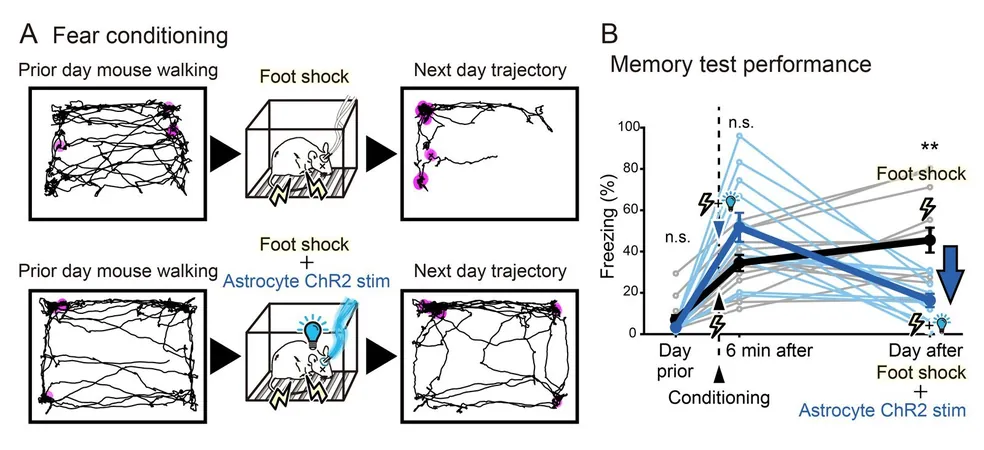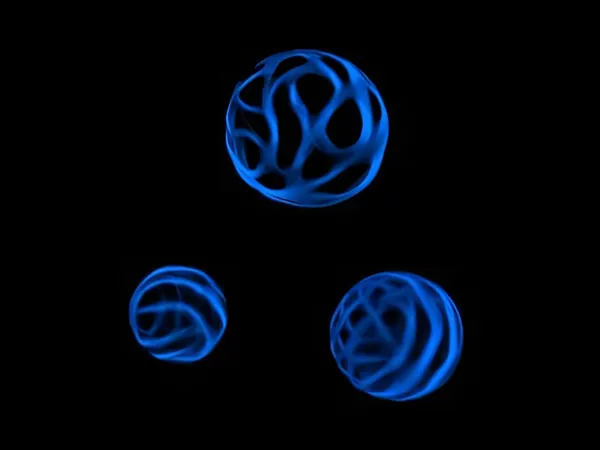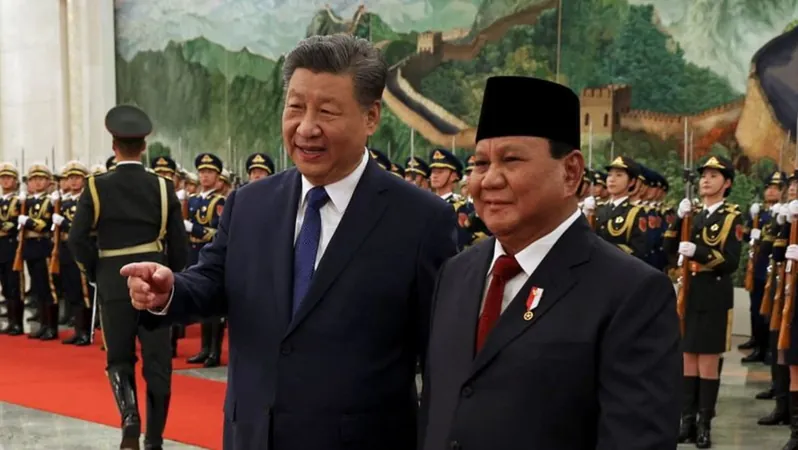
Groundbreaking Discovery: How Astrocytes Control Memory Retention Revealed by Researchers
2024-11-11
Author: Jia
Groundbreaking Discovery: How Astrocytes Control Memory Retention Revealed by Researchers
In a world where memories define our experiences and shape our identities, understanding how the brain processes these memories is more crucial than ever. Researchers at Tohoku University have made a pivotal discovery that could redefine our understanding of memory formation—revealing that astrocytes, star-shaped glial cells in the brain, play a significant role in determining which memories become long-lasting.
Unlike computers that store information indiscriminately, our brains seem to sift through which memories are worthy of preservation. While some memories linger vividly, others fade into obscurity. This selective memory process appears to hinge significantly on the function of astrocytes.
Utilizing an innovative method known as "optogenetics," the research team illuminated specific astrocytes in the brains of mice using optical fibers. This technique allowed them to manipulate these cells by either acidifying or alkalinizing them in targeted regions, specifically the amygdala—a brain area critical for emotion and fear regulation.
In the experiments, mice received mild electrical shocks while in a specific chamber. When reintroduced to the chamber, these mice instinctively froze due to the memory of the shock. However, those whose astrocytes were treated with acidification right after the shock could remember the fear only temporarily, forgetting it by the following day. Conversely, mice with alkalinized astrocytes retained their fear response even three weeks later, indicating that these cells are pivotal in determining the fate of memories immediately post-trauma.
This intriguing research indicates that instead of forming memories linearly—from short-term to long-term—memories might actually develop concurrently. "We believe this new understanding could transform how we conceptualize memory formation," shared Professor Ko Matsui from the Super-network Brain Physiology lab at Tohoku University, who spearheaded the study. He also emphasized that the influence of astrocytes on memory could be context-dependent, influenced by mental, social, or environmental factors.
Lead researcher Hiroki Yamao posits that astrocytes might also hold the key to elucidating emotional changes tied to memory formation. As Yamao puts it, "This may just scratch the surface of how astrocytes impact emotional information processing."
As science pushes the boundaries of our understanding of the human brain, this finding opens up potential avenues for exploring treatments for conditions where memory processing is impaired—such as PTSD, depression, and other emotional disorders. The implications of this research could reach far beyond the lab, influencing therapeutic strategies aimed at enhancing memory retention and emotional health.
In a world that often feels overwhelmed by fleeting moments, could the answer to our deepest emotional ties be found in the realm of these tiny yet mighty astrocytes? Only time will tell, but for now, this research marks a compelling step forward in neurology and psychology alike.




 Brasil (PT)
Brasil (PT)
 Canada (EN)
Canada (EN)
 Chile (ES)
Chile (ES)
 España (ES)
España (ES)
 France (FR)
France (FR)
 Hong Kong (EN)
Hong Kong (EN)
 Italia (IT)
Italia (IT)
 日本 (JA)
日本 (JA)
 Magyarország (HU)
Magyarország (HU)
 Norge (NO)
Norge (NO)
 Polska (PL)
Polska (PL)
 Schweiz (DE)
Schweiz (DE)
 Singapore (EN)
Singapore (EN)
 Sverige (SV)
Sverige (SV)
 Suomi (FI)
Suomi (FI)
 Türkiye (TR)
Türkiye (TR)